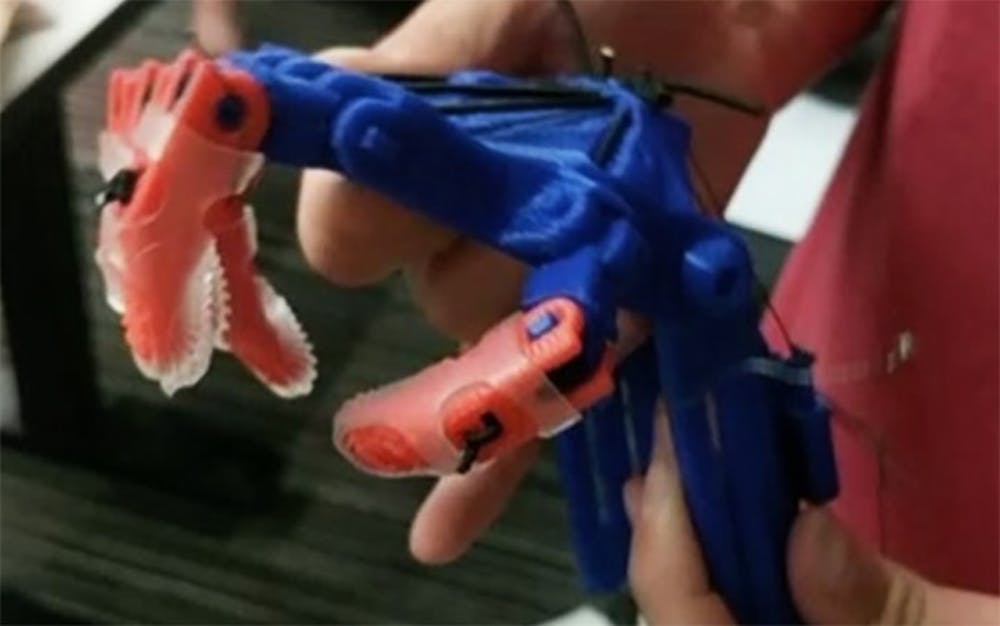The Hands On Prosthetic Engineering (HOPE) club at USC, which 3D-prints free prosthetics for members of the community in need, is working on two projects virtually this semester.
According to HOPE’s website, families traditionally have to pay $5,000 to $50,000 for a prosthetic, not to mention the additional time it takes for hospitals to mold and adjust the technology. HOPE offers help by utilizing the cheaper, yet still effective, method of 3D-printing.

“It’s just a great way to give back while doing something important,” Jenna Pehowski, HOPE's vice president and a fourth-year computer science student, said. “We actually 3D-print all the parts that we make ... Each individual finger and joint is individually printed, and then we put it together.”
HOPE is a non-profit organization co-founded by Abby Herschman and Andrew Super in 2016. As of now, the organization is both a non-profit umbrella organization and a student-run club at USC. Herschman said they use what they can to make people's lives better.
“It’s how I like to approach engineering and how HOPE started,” Herschman, CEO of HOPE, said.
The club at USC has full team meetings, project-specific meetings and 3D-printing clinics to educate members on the science behind the service the club provides.
“It also helps that it's something outside of school,” Akash Bojappa, HOPE's project lead, said. “We are helping people instead of just working on something for a grade, if that makes sense. It gives you a different motivation than just your GPA.”
In an average semester, the organization makes two to three fully functional prosthetics.
Making these prosthetics involves reaching out to people and getting measurements to ensure a good fit. After this, Pehowski said, the design team builds and adjusts prototypes.
This semester, though, that experience is looking a lot different. Like many clubs across campus, HOPE’s meetings are solely virtual.
“The big negative that comes with [being virtual] is that we can’t collaborate in person, and that’s a big part of the iterative design process, is just working together and bouncing ideas off each other in-person but holding a prototype in your hand,” Bojappa, a fourth-year mechanical engineering student, said.
Though not being able to physically hold and test prototypes poses a challenge for HOPE, the club quickly adjusted to the conditions. The club is focusing more on teaching members the 3D-printing process, including design, printing and file conversion, Bojappa said.
By using this semester to hone in on the design aspect of the project, Bojappa said HOPE will be able to hit the ground running with printing and testing next semester.
HOPE is working on the designs for two projects this semester, one for a local man named Mark and another for a local teenager named Aidan.
“What we're going to do [for Mark] is just take a hand from online, and we're going to have to physically modify it by cutting out a piece 'cause he still has his thumb,” Bojappa said. “[Aidan's] project is so unique that we're completely starting from scratch, and we’re printing things that you can’t find online. It's a lot more of a creative process."
As of right now, HOPE at USC is the only branch of the non-profit organization. Herschman, however, has big goals for the future.
“Having HOPE student organizations across the country, at different universities, and having, you know, people help out from all over. So, that’s one of the main goals that we see," Herschman said. "Little pockets of 'HOPE' being able to help out all around."

